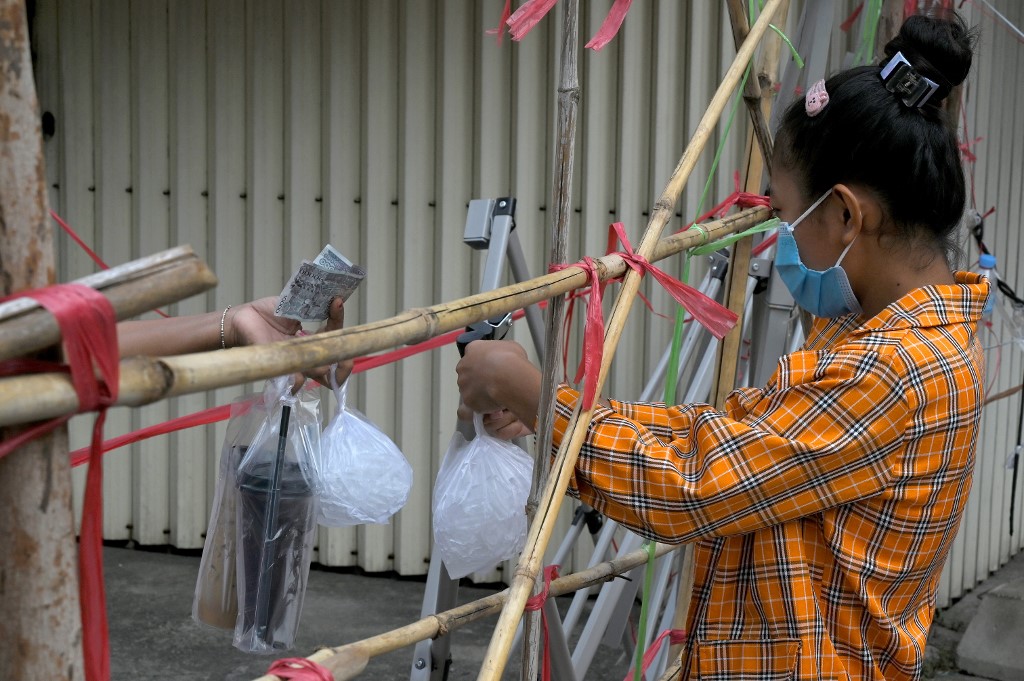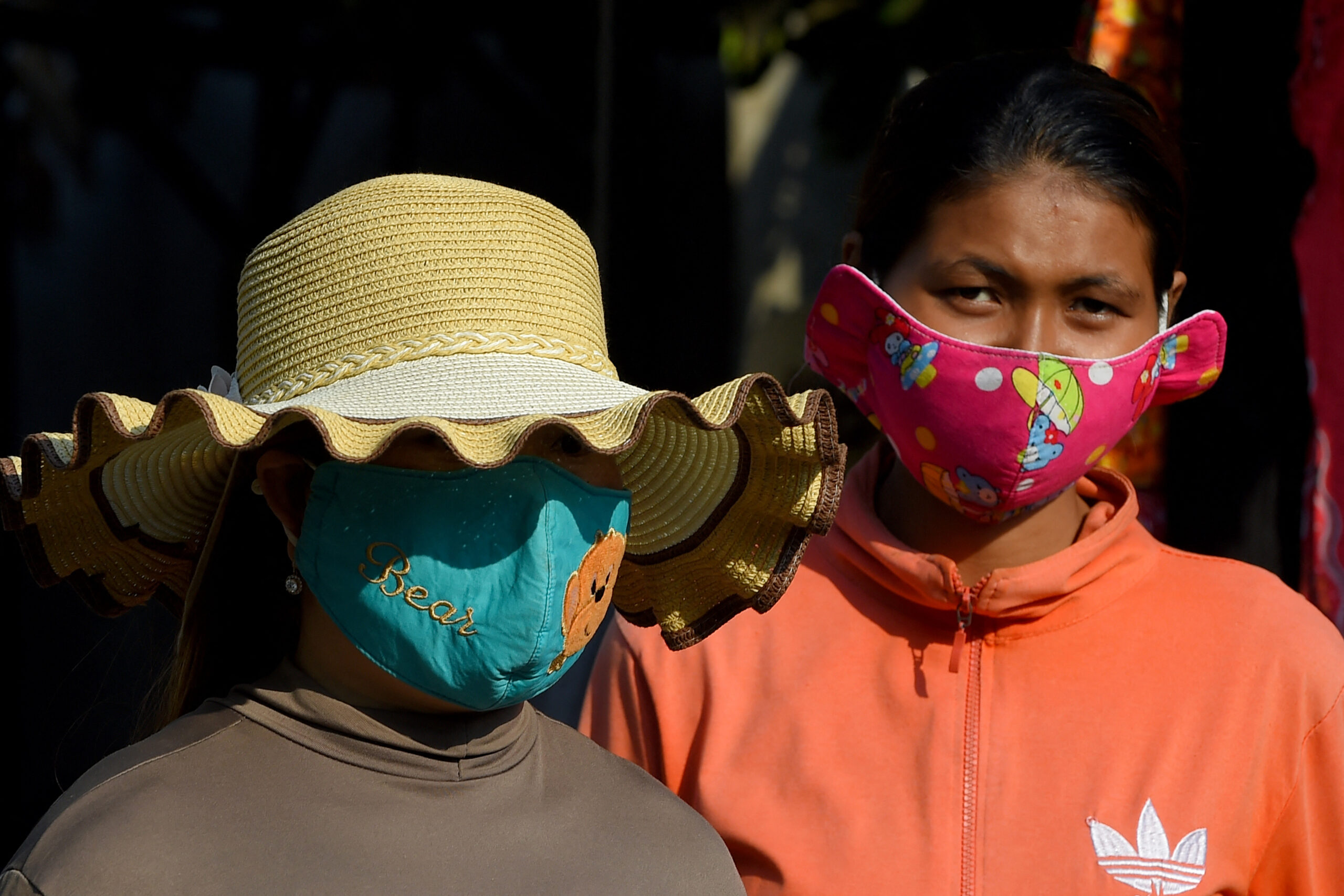The last few years have seen a rollback in women’s access to sexual and reproductive health (SRH) services globally and across Asia with the reinstatement and expansion of the Global Gag rule by then-US President Donald Trump in 2017, which reduced access to safe abortion services across the world.
Although Biden rescinded the global gag rule earlier this year, he did so in the midst of a global pandemic – a time when women faced and continue to face unprecedented challenges in seeking and accessing safe SRH services.
Cambodia legalised abortion in 1997 to help tackle its high maternal mortality rate and since then it has expanded access to a wide range of reproductive services beyond abortion. However, while laws around accessing abortion in Cambodia are progressive, the pandemic has placed enormous pressure on health services and restricted women’s access to sexual and reproductive healthcare.
Although abortion is legal in Cambodia, barriers still exist. From the stigma that still surrounds women seeking to end their pregnancies, to the added barriers brought on by the Covid-related restrictions, the difficulties women continue to face accessing clinics across Cambodia are stark.
Despite Cambodia being spared the high death tolls and Covid case numbers seen in other nations, fear of contracting the virus and being taken to government-run treatment centres means that over the past 18 months women are increasingly delaying sexual and reproductive health services.
Since March 2020, MSI Reproductive Choices has seen a significant decline in the number of women accessing safe abortion services and an increase in women seeking care to manage complications after an unsafe abortion.
Cambodia’s strict lockdowns in April of this year compounded these problems, forcing many private clinics to close and women to travel further to get the service they need, often at great risk to their own safety and health. Now, with Cambodia announcing on July 28 the reimposition of a two-week lockdown in eight provinces to contain the spread of the Delta variant, thousands of women are once again facing the prospect of an interruption to these vital services.

This interruption to sexual and reproductive health services in Cambodia is part of a global trend. Last year, MSI Reproductive Choices estimated that the pandemic and related lockdowns, travel restrictions, supply chain disruptions and healthcare diversions resulted in 1.9 million fewer women worldwide being served by its programmes from January to June 2020. We estimate that this led to 1.5 million additional unsafe abortions, 900,000 additional unintended pregnancies, and 3,100 additional maternal deaths globally.
The economic fallout of the pandemic has hit women hard too and added fears about contracting Covid-19 at clinics has pushed women in Cambodia towards cheaper and less safe abortion alternatives, putting their lives at risk, despite being legally able to access safe care.
During lockdown, despite guidance stating that private healthcare services could remain open, many clinics shut their doors. Women either had to travel to access abortion care – facing police checkpoints which required individuals to prove their travel is essential and being asked unnerving questioning on where they were going and what they were doing – or they had to access a more local, potentially unsafe service.
They are not only worried about putting themselves at risk, but also worried about bringing Covid-19 home and infecting their family, especially elderly relatives
MSI’s Helpline Manager, Sreyneath, spoke about the lengths women have gone to, including the risk of catching Covid-19, to access MSI services.
“Over the last several months, women have had to make tough decisions to leave their homes and risk contracting Covid-19. They are not only worried about putting themselves at risk, but also worried about bringing Covid-19 home and infecting their family, especially elderly relatives.”
Adding to the risk during lockdown was that clients had to disclose their healthcare needs to more than just their healthcare provider. When living in small communities and dealing with SRH services, this was especially sensitive.
“Once they made the decision to leave home they often had to go to their local authority and request a letter giving them permission to travel,” Sreyneath said. “They had to disclose to the local authority what service they are requiring, and there are occasions when they had to disclose private information to individuals connected to their family.”
At MSI, we too faced huge challenges keeping our clinics open during that time, with our doctors and midwives often turned back at checkpoints during lockdown, despite having the correct documentation and approval to travel.
Our Chbar Ampov clinic was forced to close for a short period during lockdown, meaning that clients we’ve reliably served for many years faced challenges accessing SRH services. The closure impacted clients like Sreyleak, who like many others lost her job and access to contraception during lockdown, consequently falling pregnant – the last thing she wanted during the pandemic.
Despite having to face difficult questions at checkpoints where she might also contract Covid-19, Sreyleak overcame her fears and on April 17 set out to reach our clinic in Chbar Ampov, only to find it was closed due to medical staff not being given permission to travel through checkpoints.
Luckily, the following day, we were able to reopen our Chbar Ampov clinic and our helpline supported Sreyleak to access care. As Sreyleak found, even when women had approval from local authorities to travel, accessing healthcare was not always plain sailing. Sreyneath, the MSI Reproductive Health helpline manager confirms this.
“Once women got permission to travel, they then had to undertake a very nerve-wracking and stressful journey, often having to prepare in advance a script which explained clearly to those policing checkpoints why they needed to travel,” she said.
“It was not uncommon for women to have to pass a minimum of five checkpoints to get to a health facility. Once they got to one of our facilities, they had to face the same ordeal getting home all over again.”

It isn’t just the abortion services that we provide at MSI that have been impacted. We have seen women postpone appointments for contraception, STI tests and gynecological check-ups, putting them unnecessarily at risk of infection or an unintended pregnancy.
But just as the pandemic has stripped away women’s access to services, MSI remains even more determined in overcoming the barriers they continue to face and has worked to adapt and innovate to keep services open. In response to the pandemic, MSI has been using technology to reach potential and existing clients in Cambodia with sexual health and reproductive information, and counselling services.
Our helpline team has provided comprehensive sexual and reproductive health information, counselling and services to clients over the phone and via social media, helping them to access care from the privacy and safety of their homes. This has also helped to provide a triage service, helping clients to access further in-person services should they need them.
Technology has also helped us to reach those who are regularly left behind by sexual and reproductive health services, including women with disabilities and young people who are even more vulnerable to sexual exploitation and gender-based violence as a result of the pandemic.
At a time when women’s reproductive rights have been restricted, technology has truly revolutionised access to services in ways we are certain will last beyond the pandemic.
Following the launch of telemedicine services by MSI’s UK team in April 2020, which delivers medical abortion pills directly to women, we hope to rollout similar services in Cambodia to support women to access medical abortion remotely. We hope, that by doing this, we will tackle the increase in women buying poor quality abortion pills from local pharmacists who are not trained to provide the necessary guidance and information. The Cambodian government also sees the benefits of telehealth and are encouraging healthcare providers to innovate to ensure essential services are still available for women.
Our MSI Cambodia contact centre already provides clients with comprehensive information on sexual and reproductive health, including counselling services, referrals to services and where necessary, guidance on how to self-manage their own needs.
For clients like Sreyleak, these services are essential. While this latest lockdown looks set to reintroduce barriers to accessing MSI’s services, as it did in April, we are determined that we will continue reaching the women who need them, wherever and whenever they need us.
Ella Nwaokolo is MSI Reproductive Choices’s Cambodia Country Director


